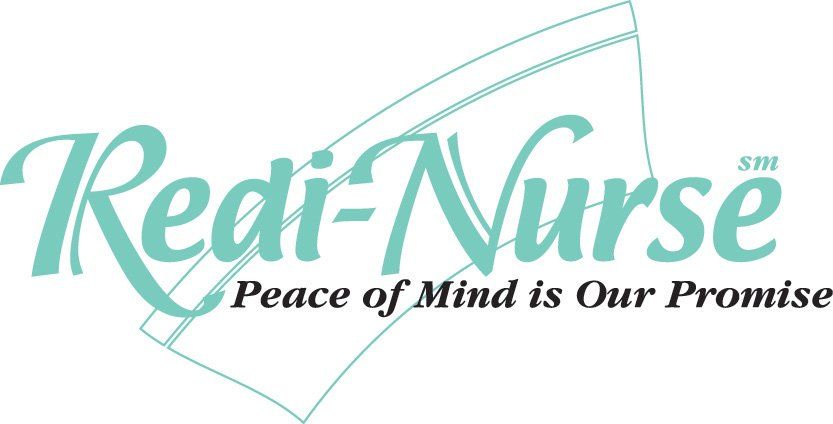Signs It's Time To Consider In-Home Care
Admin • November 24, 2021
Many elderly people want to live out their final years in their own homes, but they may need some assistance to do so safely. Additional care is
often overlooked until there is an emergency, but securing help before there is a problem can help your loved one stay active and independent
longer.
If you have an elderly family member or friend who struggles to keep up at home, now may be time to consider hiring a nurse, home health aide,
medical social worker, or sitter to help with their care plan.
Frequent Illness or Accidents
If you have an elderly family member who gets sick frequently, an in-home nurse or aide can help avoid an emergency by regularly checking in to
monitor their condition and help your loved one decide when it's appropriate to seek further medical attention.
A medical social worker or nurse case manager can help plan medical care across providers for people who have multiple providers or multiple
medical issues they need to manage.
The more accidents an elderly person has, the more risk there is for a serious accident that could lead to a severe injury. If your loved one
experiences frequent falls, bruises, or other injuries, part-time or full-time in-home care can help keep them safe.
Nutrition and Hygiene Issues
Proper nutrition and hygiene are important for elderly people, but they may have difficulty with these activities of daily living as they age. In-home
care can help with meal planning and preparation so your loved one gets enough calories and nutrients in their daily diet.
Elderly people can also be prone to dehydration. An in-home nurse can check your loved one's hydration levels and suggest ways to get more
water in their daily diets.
In-home caregivers can also help with hygiene-related tasks, which can be difficult for aging people who are trying to remain independent.
Home health aides can help with bathing, dressing, brushing hair, brushing teeth, trimming nails, and other basic hygiene procedures that your
family member may need assistance with.
Mobility and Transportation Difficulties
Some of the most common reasons elderly people need in-home assistance are mobility issues. If your loved one can't get around the house
easily, they may struggle with daily tasks like getting dressed, bringing in the mail, and cleaning.
Many home care providers offer therapy services so your loved one can have their mobility needs assessed by a physical or occupational
therapist. An in-home therapist can recommend mobility aids, such as walkers and wheelchairs, which will work best in your loved one's home.
If your loved one can no longer drive, it may be difficult for them to shop for necessities and get to appointments. In-home care services can help
set your loved one up with a medical social worker or other aide who can help arrange transportation.
Memory and Mental Health Problems
Elderly people who suffer from dementia, Alzheimer's, or other memory problems often need in-home care to stay in their own homes rather than
go to a care facility. In-home care takers can help set up medication and activity reminders, make sure your family member takes their
medications on time, and can help them remember all of their daily tasks.
Elderly people often experience depression, anxiety, and other mental health problems as they age, particularly if they live alone.
If your family member appears down, disengaged with social activities, or consistently stressed, it may be time to consider additional in-home help
to alleviate some of the everyday burdens and provide companionship.
A Visiting Redi-Nurse offers a variety of nursing and in-home caregiver services in the Lake Worth and Port St. Lucie, Florida areas. Contact us
today to set up an initial consultation to determine what services would be beneficial for your aging loved one.
Many families turn to private duty nurses to help shoulder the responsibilities and care for their loved ones. Read this blog to learn more.
A natural disaster can happen to anyone at any time. Preparedness is vital, so to help you create a workable plan, use these tips for success.
Are you the caretaker for an elderly loved one? If so, learn about a few of the benefits you and your loved one can enjoy with a visiting nurse.
Your loved one can benefit from different forms of therapy. In-home nursing services can bring the therapy to your loved ones. Look at three common options.
Read on to discover some reasons why in-home nursing services might be the best choice for people needing medical and personal help.
If you suspect that your loved one has dementia, you should learn more about the condition. Read this blog for a quick overview of dementia.
Proper exercise is key to a healthy lifestyle, particularly as people grow older. Learn about different exercises that are especially great for seniors.
The care of a patient with dementia presents many challenges. Discover some ways to cope with the difficulties of caring for a loved one with dementia.
Do you care for a senior who is frailer? Discover four smart steps you can take to reduce fall risks for the senior who is physically frail in your life.





